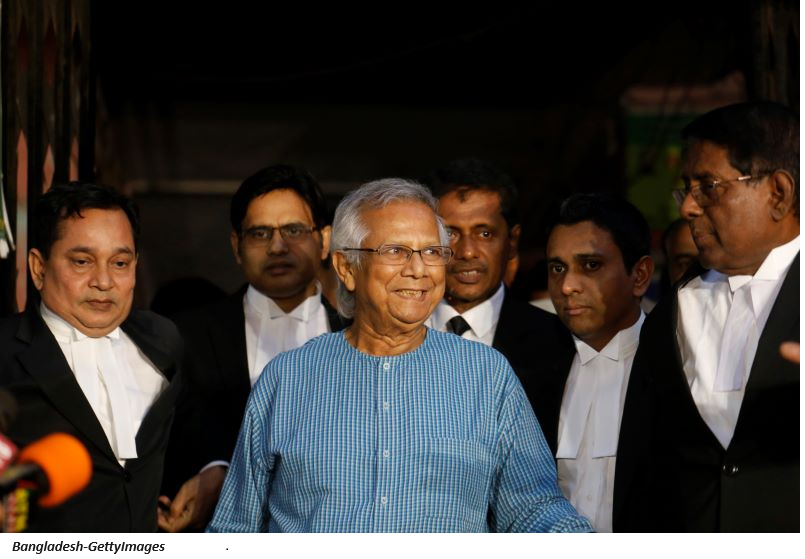BANGLADESH: Stop judicial harassment of Nobel laureate Muhammad Yunus
A Joint Statement by the Asian Human Rights Commission & CIVICUS
CIVICUS Global Civil Society Alliance and the Asian Human Rights Commission (AHRC) call on the Bangladeshi authorities to immediately end the ongoing judicial harassment of Muhammad Yunus. Ahead of the Nobel laureate and social activist’s upcoming trial this month, we call for his conviction to be quashed and all other charges dropped unconditionally.
 Muhammad Yunus is the founder of the micro-financing institution Grameen Bank. In 2006, he and his bank won the Nobel Peace Prize for their work lifting millions out of poverty by granting microloans. However, he has earned the enmity of long-time Prime Minister Sheikh Hasina, who has made several scathing verbal attacks against him.
Muhammad Yunus is the founder of the micro-financing institution Grameen Bank. In 2006, he and his bank won the Nobel Peace Prize for their work lifting millions out of poverty by granting microloans. However, he has earned the enmity of long-time Prime Minister Sheikh Hasina, who has made several scathing verbal attacks against him.
He is facing over 100 cases on allegations of corruption and labour law violations. Yunus denied the charges, saying the government was engaged in a judicial harassment campaign against him.
In September 2023, the UN raised concerns about the intimidation and harassment against Yunus which has persisted for almost a decade. The smear campaigns against him emanate from the highest levels of government, undermining his right to a fair trial and due process in line with international standards.
On 1 January 2024, Yunus was convicted of violating Bangladesh’s labour laws. He and three of his Grameen Telecom colleagues were sentenced to six months in jail for failing to create a workers’ welfare fund in the company. They were granted bail pending appeals. On 12 June 2024, Yunus and 13 others were indicted on charges of embezzlement from the welfare fund of his telecom company. Yunus has denied these charges, and his trial is due to start on 15 July.
The judicial harassment of Nobel laureate Muhammad Yunus seems to be vindictive and politically motivated and highlights the systematic targeting of civil society and critics by the Sheikh Hasina regime. The authorities must halt this abuse of the judicial system to persecute Yunus and end this travesty of justice.
In December 2023, the CIVICUS Monitor downgraded Bangladesh’s civic space to ‘closed,’ its worst rating. The downgrade is the result of attacks on civil society and a massive government crackdown on opposition politicians and independent critics in the run-up to the national elections held in January 2024.
In recent years, the CIVICUS Monitor has documented the targeting of human rights defenders like Adilur Rahman Khan and Nasiruddin Elan, who were sentenced to two years in jail in September 2023 for a decade-old report investigating extrajudicial killings by Bangladeshi law enforcement agencies. The authorities have targeted journalists exposing state abuses and shut down media outlets critical of the state. A new Cyber Security Act includes repressive language adopted from the previous draconian Digital Security Act used to criminalise thousands of online critics.
Bangladesh authorities must halt their repression of activists and end the use of restrictive laws to silence all forms of dissent. Instead, they must take steps to adhere to international human rights obligations to respect and protect fundamental freedoms and create an enabling environment for civil society.



